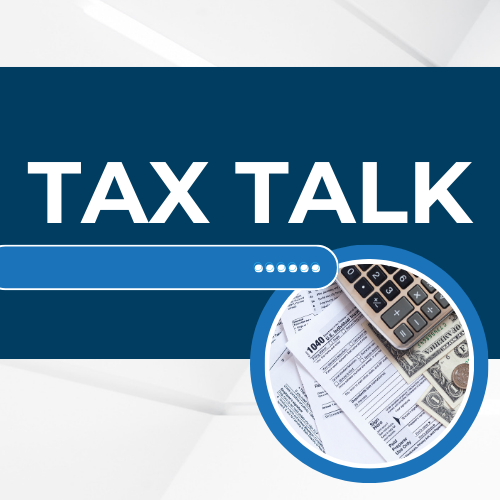June 2024 Newsletter
June 2024 Newsletter

Looking for Summer Help? Hire your Kids!
Summer has just begun, and with school out, little Johnny and Susie may find themselves with ample free time. While they have mastered their latest video game and attended various summer camps and sports activities, these pursuits only occupy so much of their day. To prevent boredom and the potential overuse of social media, consider engaging them in productive work. In other words: put those kids to work in your business!
The IRS has actually carved out an incentive out parents to put their kids to work in their business to the tune of $14,600 per child, tax free!
What is the catch?
- The kids actually need to be working in your business. Have them stuff envelopes, write posts for your social media, hand out flyers, data entry, etc.
- You have to pay them a reasonable rate. Sorry, but little kiddo isn't worth $50/hr. to lick envelopes. Pay them the same rate that you would if you were to outsource the work to another employee.
- For the plan to be entirely tax free, the wage needs to come from a sole proprietorship. If you are operating as an S Corporation, no worries! You would then create a family management company that would be essentially serve as a contractor from your business that in turn pays the kids. So long as the kids are under 18, there are no FICA taxes that need to be withheld from pay and no income tax will be due if they stay under the standard deduction amount ($14,600).
How does it work?
- Give them a job that contributes to your business in a meaningful way, that also teaches them employable skills. Put Johnny and Susie to work at the cash register, mowing the lawn, organizing your inventory, or stuffing envelopes for your business. Or maybe they're better at creating content and posting for your business on social media?
- Pay them (up to) $14,600 and put the money into their bank account, or an account that they are signers on/have access to.
When you pay your children for working in your business this way, your business takes the expense deduction AND your businesses taxable income is reduced. Not only do they learn valuable skills while working, but they'll earn spending money that can be used for things including their back-to-school clothes, their first car, the latest iPhone, or even just for them to save for the future.
Bonus Depreciation
Small businesses looking to maximize their tax savings can benefit significantly from the bonus depreciation provision under the current tax code. Bonus depreciation allows businesses to immediately deduct a large percentage of the cost of eligible assets in the year they are placed in service, rather than depreciating them over their useful life.
As of the Tax Cuts and Jobs Act (TCJA), businesses can claim 100% bonus depreciation for qualified property acquired and placed in service after September 27, 2017, and before January 1, 2023. This includes tangible property such as machinery, equipment, computers, appliances, and furniture. Even used property can qualify, provided it is the taxpayer's first use of the property.
This provision is especially beneficial for small businesses, providing immediate cash flow benefits by reducing taxable income. It encourages investment in new equipment and technology, enabling businesses to expand and modernize without a heavy upfront tax burden.
However, it’s important to note that the 100% deduction rate is set to phase down beginning in 2023. Unless the law changes, the bonus percentage will be reduced by 20 points each year for property placed in service after December 31, 2022, and before January 1, 2027. A bipartisan tax proposal sought to restore the full bonus depreciation for qualified property placed in service during this period, retroactively effective from the beginning of 2023. While this measure successfully passed in the House, it stalled in the Senate and is unlikely to move forward.
By understanding and utilizing bonus depreciation, small businesses can significantly enhance their financial position, ensuring they remain competitive and poised for growth. Small business owners should consult with their tax advisors to strategically plan asset purchases and take full advantage of the current 100% bonus depreciation rate while it is still available.
Beneficial Ownership Information Reporting
Starting in 2024, small business owners must comply with a new federal rule requiring the disclosure of beneficial ownership information to the Financial Crimes Enforcement Network (FinCEN). This regulation, established under the Corporate Transparency Act (CTA), aims to combat illicit activities such as money laundering, fraud, and terrorism financing by increasing transparency in business ownership.
The rule mandates that corporations, limited liability companies (LLCs), and other similar entities report detailed information about their beneficial owners. A beneficial owner is defined as any individual who directly or indirectly owns or controls 25% or more of the entity, or who exercises substantial control over it. The required information includes the owner's full legal name, date of birth, residential address, and a unique identifying number from an acceptable identification document, such as a driver's license or passport.
This information must be reported to FinCEN at the time of the entity's formation or registration, and updated within 30 days of any changes. Existing businesses will have one year from the effective date to comply with the new requirements.
The introduction of this rule is a significant shift for small businesses, many of which have not previously been subject to such stringent reporting requirements. While the rule aims to enhance financial transparency and prevent illegal activities, it also poses additional administrative burdens for small business owners. Non-compliance can result in substantial penalties, including fines of up to $500 per day and potential criminal charges.
To navigate these new requirements, small business owners should consult with legal and financial advisors to ensure full compliance. It is essential to understand the scope of the reporting obligations and to establish internal processes for timely and accurate submission of beneficial ownership information.
To learn more, be sure to visit the BOI Reporting FAQ page on FinCEN's website.
The link can be found here: Link to BOI Reporting FAQ















